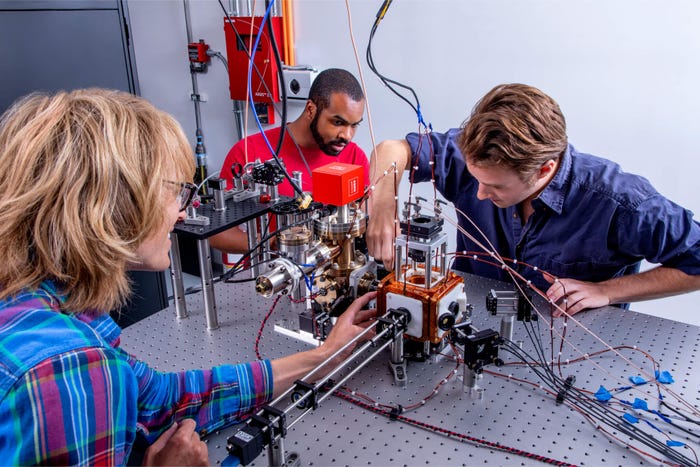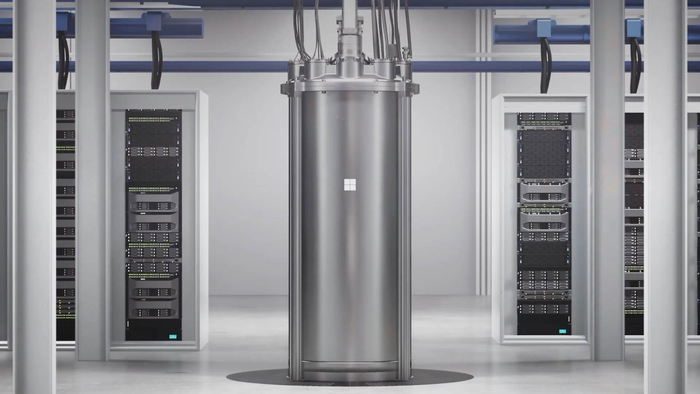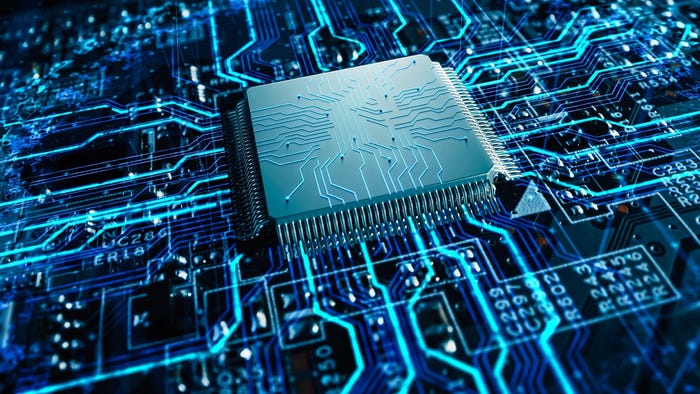
Connects decision-makers and solutions creators to what's next in quantum computing
Quantum Technology Enables Brain Signals to Direct Prostheses, Hannover Messe 2024Quantum Technology Enables Brain Signals to Direct Prostheses, Hannover Messe 2024
Q.Ant quantum magnetic field sensor can also control exoskeletons and avatars

Quantum technology company Q.Ant has unveiled a sensor that can pick up the magnetic field of the body’s tiny electrical signals and use it to control prostheses, exoskeletons or avatars.
The company debuted its tiny new sensor at Hannover Messe 2024, taking place April 22-26 in Hanover, Germany.
More precise than previous iterations, Q.Ant’s sensor can measure the smallest electrical currents through their magnetic field and use these “biosignals” to operate devices without needing direct body contact.
According to Q.Amt, in prosthesis control, magnetic signals are more precise and reliable than electrical signals, which can be disturbed by sweat or hair on the skin.
“The new technology takes prosthetic fitting for people with arm or leg amputations to a new level, improving their quality of life. It also contributes to better social integration of people with missing limbs,” said Dieter Jueptner, president of the German Federal Association for People with Arm or Leg Amputations.
The sensor could also be used to control exoskeletons intuitively, in rehabilitation to control muscle training or in diagnostics of muscular dysfunctionalities. It also has a potential application in telemedicine to control avatars in the metaverse and make medical sensors more sensitive and accurate.
Outside of health care applications, Q.Ant’s magnetic field sensor could work alongside quantum computing to transform industry.
“Quantum sensing is a game changer for the industry. Our sensor can be used in a wide range of applications, including medical, electronics and automotive,” said Q.Ant CEO Michael Foertsch.
“It can be used to measure the finest electrical currents and the resulting magnetic fields. We are creating something completely new that will shift the way we think about sensing in many industries. Applications range from the quality assurance of hard disks to the identification of fault currents in power chips or batteries, and one day even machines and devices will be able to be controlled by thought.”
Read more about:
Hannover Messe 2024About the Author
You May Also Like






